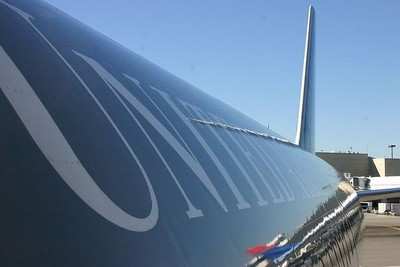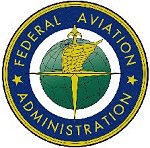Age-60 Rule Is Under Fire Again
 A battle that's
simmered for years is in the limelight again -- this time before
Congress. Thirty airline veterans began a two-day
lobbying campaign Tuesday in Washington asking lawmakers to
repeal the age-60 rule -- as they've had no luck with the FAA on
this one.
A battle that's
simmered for years is in the limelight again -- this time before
Congress. Thirty airline veterans began a two-day
lobbying campaign Tuesday in Washington asking lawmakers to
repeal the age-60 rule -- as they've had no luck with the FAA on
this one.
Paul Emens, founder of Airline Pilots Against Age
Discrimination, says the US could save around a billion-dollars per
year -- mostly in Social Security and pension benefits -- if pilots
were allowed to fly five years more to age 65.
Older pilots say the change is more important than ever for
them, especially since many airlines have restructured and
drastically reduced or eliminated employee pension benefits.
United captain Allan Englehardt has flown for United for 37
years, he's 59. He says the $142,000 per year pension he'd counted
on is gone, replaced with a bankruptcy court-sanctioned annuity
from the US government's Pension Benefit Guaranty Corporation
paying around $30,000. Pilots say five more years could help offset
lost pension benefits with another $800,000 to a million dollars in
income.
The FAA maintains there is no compelling scientific evidence to
warrant review of the current rule -- which is based on the
assumption older pilots pose a greater medical risk. But older
pilots disagree, citing Israel's El Al pilots who have flown
to age 65 for the past 15 years with no reported age-related
accidents.
Englehardt told the Associated Press, "Safety is no longer an
issue for discussion, as foreign airlines from all parts of the
world have, for many years, demonstrated that they have been able
to safely fly to age 65."

Effective November 23, the International Civil
Aviation Organization will raise age limits for pilots
worldwide. Currently, the FAA allows El Al pilots older than 60 to
fly into the US only as co-pilots. After November 23, they'll have
to allow pilots up to 65 so long as they are accompanied by a
co-pilot under 60.
"The issue was age discrimination, but now it has become
discrimination against Americans," Englehardt said. "It's the
rights of Americans who have served our country in the military and
paid taxes for 40 years, versus the rights being given to foreign
pilots who pay no taxes."
Ironically, older pilots face opposition even from their own.
Duane Woerth, President of ALPA, the Air Line Pilot's
Association, favors keeping the current rule, claiming it's
impossible to determine which older pilots might suffer a sudden
catastrophic medical problem.
 A transportation
appropriations bill approved by committee -- and containing a
provision to up the age limit to 65 -- is before the full Senate,
but it's unlikely to pass before the fall recess.
A transportation
appropriations bill approved by committee -- and containing a
provision to up the age limit to 65 -- is before the full Senate,
but it's unlikely to pass before the fall recess.
There does appear to be at least some movement by the FAA on the
issue, however... as Wednesday, FAA Administrator Marion C. Blakey
established a forum of airline, labor and medical experts to
recommend whether the United States should adopt the new ICAO
standard. The forum also will determine what actions would be
necessary if the FAA were to change its rule.
"The FAA must ensure that any future rule change, should it
occur, provides an equal or better level of safety to passengers,"
said Blakey. "I’m looking forward to hearing from the experts
so the FAA can make informed decisions as the ICAO standard is
implemented and Congress considers this issue."
Hmm... it looks like it pays to take your case to the
top!
 Klyde Morris (05.02.25)
Klyde Morris (05.02.25) Classic Aero-TV: Introducing The MD302--Mid-Continent's Standby Attitude Module
Classic Aero-TV: Introducing The MD302--Mid-Continent's Standby Attitude Module ANN's Daily Aero-Linx (05.04.25)
ANN's Daily Aero-Linx (05.04.25) ANN's Daily Aero-Term (05.04.25): Jamming
ANN's Daily Aero-Term (05.04.25): Jamming Aero-News: Quote of the Day (05.04.25)
Aero-News: Quote of the Day (05.04.25)





